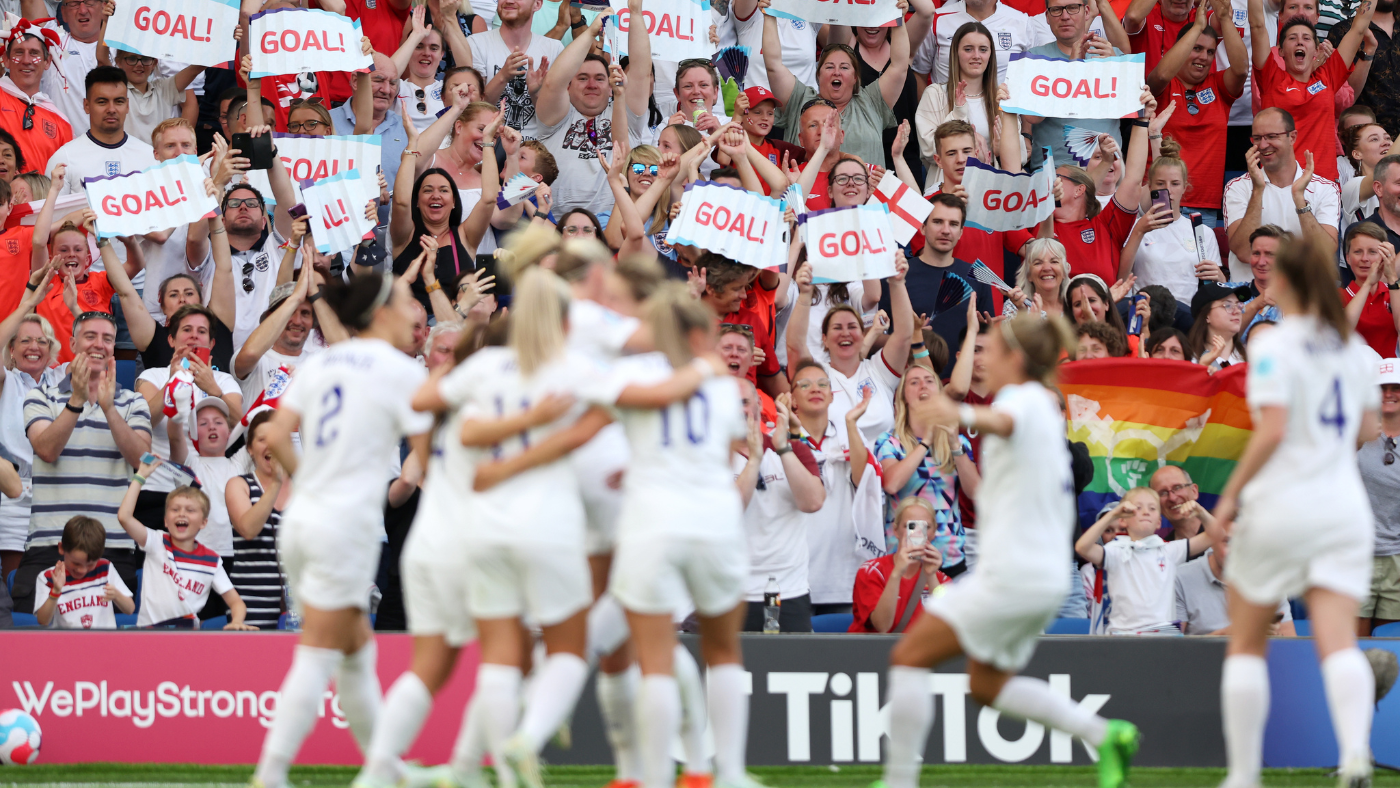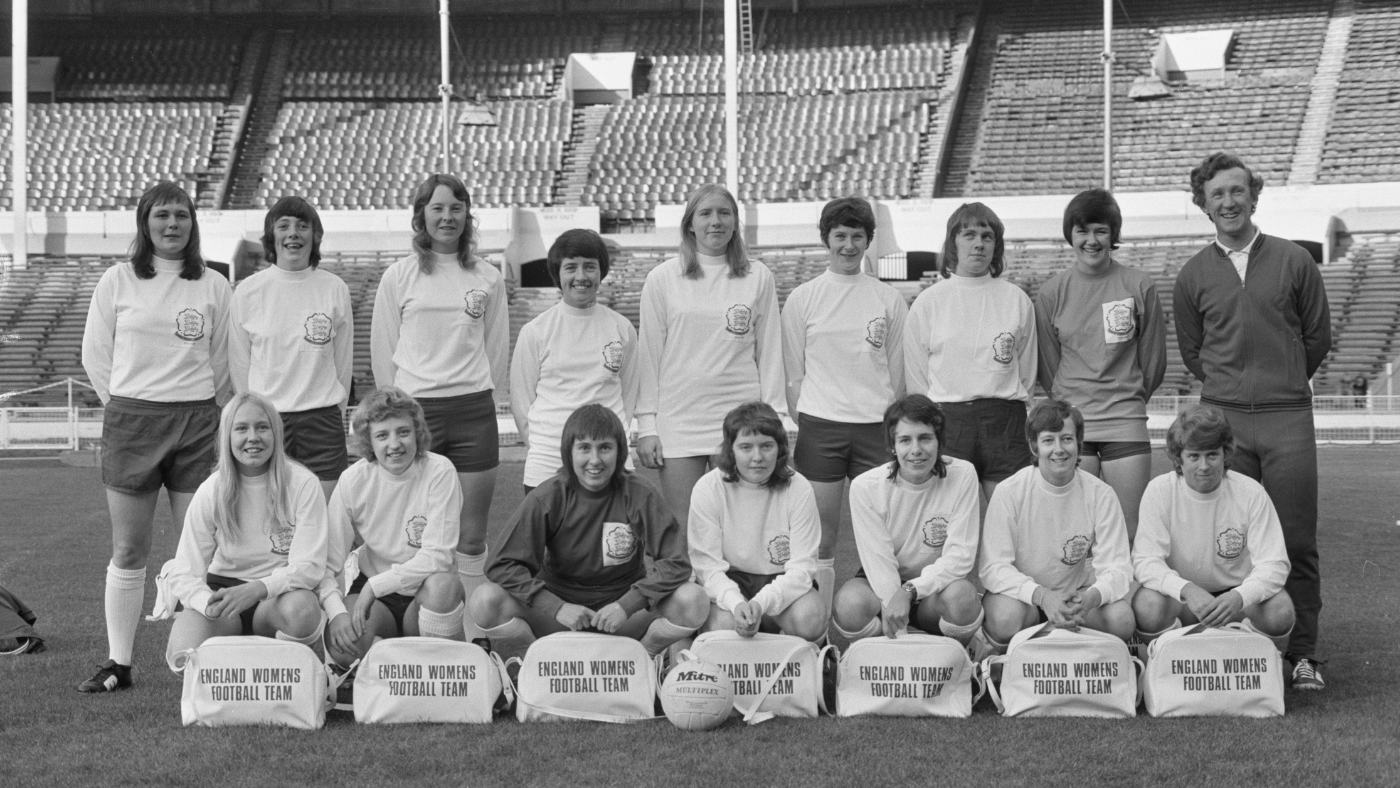Is 2022 a defining year for women’s football?
Lionesses could storm to success at Euros 2022 but shadow of sport’s history still clouds its current success

A free daily email with the biggest news stories of the day – and the best features from TheWeek.com
You are now subscribed
Your newsletter sign-up was successful
England’s Lionesses stormed into the Uefa Women’s Euro 2022 final after a 4-0 win over Sweden, and pundits say the team have what it takes to claim the tournament’s ultimate prize.
2022 is a “breakthrough year” for women’s football, said The Guardian at the start of July. Change has been “bubbling through for a while”, and now “there is all to play for”. Tickets to the final at Wembley on 31 July sold out in less than an hour, and stadia across England have been packed out with football fans who have travelled internationally to see their teams compete.
Not all are as quick to conclude that now is women’s football’s so-called “moment”. It’s only “thanks to Fifa’s eccentric decision” to hold the men’s World Cup in Qatar this winter, The Economist said, that the women’s game is enjoying a “rare few weeks in the limelight”. For more than 100 years, the sport “has struggled to get recognition in the face of dismissive male attitudes”.
The Week
Escape your echo chamber. Get the facts behind the news, plus analysis from multiple perspectives.

Sign up for The Week's Free Newsletters
From our morning news briefing to a weekly Good News Newsletter, get the best of The Week delivered directly to your inbox.
From our morning news briefing to a weekly Good News Newsletter, get the best of The Week delivered directly to your inbox.
The ban that ‘destroyed’ the sport
Women’s football’s “‘golden era’” came in World War One, said the BBC. Women who had taken on work in munitions factories during the war effort formed teams to play matches and raise money for wounded soldiers – but this success was “short-lived”. Despite thousands of fans filling stadia to watch women’s games in the years after the war ended, the FA imposed a ban on women playing football in 1921, describing the sport as “unsuitable for females”.
“This diktat all but destroyed women’s football and, worse still, cemented prejudices that have taken a long time to shed,” said The Times’s columnist Matthew Syed. Women continued to play at home, in often appalling conditions, and internationally. However, it was not until 1971, 50 years later, that the ban was eventually lifted.
Things didn’t necessarily get easier after that. England’s first official Lionesses did not receive official caps from the FA after their win against Scotland in 1972, the first official international game both teams competed in. The players instead paid for their own handmade replicas, and some of the team have told Sam Cunningham, the i news site’s chief football correspondent, of their disappointment that the FA has still not awarded them an official cap, particularly as this year marks the 50th anniversary of that victory.
“It’s all very well saying we’re pioneers, but show us,” said former right-back Maggie Pearce. “It’s frustrating and disappointing when you hear all this going on.”
A free daily email with the biggest news stories of the day – and the best features from TheWeek.com

Rebuilding momentum
In the past 30 or so years, momentum and support around the women’s game has been building, and the introduction of the FA Women’s Super League (WSL) in 2011 was a pivotal moment in the professionalisation of the game. Top players no longer needed to squeeze training sessions around their full-time jobs as teachers or postal workers – they would finally receive a full salary for their sports work.
With regard to the standard and quality of the players’ skills today, “you only have to look at women’s matches from the past to note the progress that has been made and to gain a sense of the promise of the next quarter-century”, said The Times’s Syed.
The sport also had a boost from new fans. Television audiences “have been building” thanks to major broadcasting deals, said The Economist, with 125,000 people on average tuning in to England’s Women’s Super League every game, according to Sky Sports. Millions will be watching this year’s Euros, the magazine continued, and “many will be inspired to take up the game”.
“That will be extremely good for the long-term development of women’s football.”
Syed agreed that the game’s current success “hints at a future evolutionary trajectory that will, I suspect, amaze insiders – and confound the critics”.
The Overview
Have lessons been learnt from the history of women’s football? Who are the new fans giving the sport a renewed surge of support? And what would it take to overcome the remaining barriers that stand in the sport’s way?
On this episode of The Overview, The Week speaks to Professor Jean Williams, historian and author, Jen O’Neill, editor of She Kicks magazine, and Jenny Mitton, director at M&C Saatchi Sport and Entertainment.
Julia O'Driscoll is the engagement editor. She covers UK and world news, as well as writing lifestyle and travel features. She regularly appears on “The Week Unwrapped” podcast, and hosted The Week's short-form documentary podcast, “The Overview”. Julia was previously the content and social media editor at sustainability consultancy Eco-Age, where she interviewed prominent voices in sustainable fashion and climate movements. She has a master's in liberal arts from Bristol University, and spent a year studying at Charles University in Prague.
-
 Sepsis ‘breakthrough’: the world’s first targeted treatment?
Sepsis ‘breakthrough’: the world’s first targeted treatment?The Explainer New drug could reverse effects of sepsis, rather than trying to treat infection with antibiotics
-
 James Van Der Beek obituary: fresh-faced Dawson’s Creek star
James Van Der Beek obituary: fresh-faced Dawson’s Creek starIn The Spotlight Van Der Beek fronted one of the most successful teen dramas of the 90s – but his Dawson fame proved a double-edged sword
-
 Is Andrew’s arrest the end for the monarchy?
Is Andrew’s arrest the end for the monarchy?Today's Big Question The King has distanced the Royal Family from his disgraced brother but a ‘fit of revolutionary disgust’ could still wipe them out